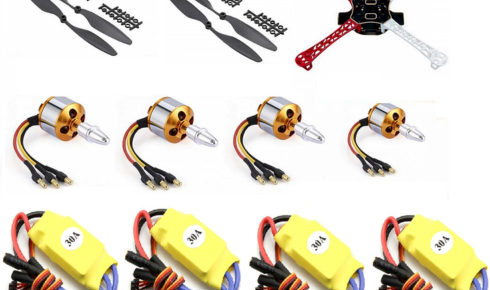In the modern era of technology and mobility, hands-on projects are a great way to understand electronics, mechanics, and automation. An ebike motor is a core component of electric bicycles, providing smooth propulsion and energy-efficient transportation. Similarly, a drone motor kit allows students, hobbyists, and enthusiasts to explore the fundamentals of flight, robotics, and electronic systems. Combining these components in learning projects creates an engaging and practical experience for anyone interested in modern technology.
E-bike motors are designed to convert electrical energy into mechanical motion, enabling bicycles to move efficiently with minimal human effort. They vary in type, including hub motors, mid-drive motors, and geared systems, each offering specific advantages in torque, speed, and battery efficiency. Learning about e-bike motors helps students understand essential engineering concepts such as torque, rotational speed, energy consumption, and motor control. Additionally, it teaches practical skills related to installation, wiring, and troubleshooting.
Drone motor kits, on the other hand, provide a hands-on introduction to aerial robotics. These kits typically include brushless motors, propellers, electronic speed controllers (ESCs), and sometimes frames or controllers. By assembling a drone motor kit, learners can explore the principles of flight, thrust, balance, and stability. Understanding how drone motors interact with electronic components and sensors offers insights into robotics, mechatronics, and automation, making these kits ideal for STEM (Science, Technology, Engineering, and Mathematics) education.
One of the key benefits of working with an e-bike motor is the practical knowledge it provides about sustainable transportation. Electric bikes are eco-friendly alternatives to traditional vehicles, reducing carbon emissions while offering efficient commuting options. Students can experiment with speed control, regenerative braking, and battery optimization, gaining hands-on experience with real-world engineering solutions. This practical exposure encourages critical thinking, problem-solving, and innovation.
Drone motor kits also encourage creativity and experimentation. Learners can assemble, test, and modify drone motors to achieve optimal performance. They can experiment with different propeller sizes, motor configurations, and power settings to understand how these variables affect lift, speed, and stability. This interactive learning helps students develop analytical skills, patience, and precision while working on complex projects.
Integrating e-bike motors and drone motor kits into educational projects fosters collaboration and teamwork. Students often work in groups to troubleshoot problems, share ideas, and optimize designs. These projects also provide a sense of accomplishment when learners see their systems functioning as intended, whether it’s a smoothly running e-bike or a fully operational drone. This experience builds confidence, encourages further experimentation, and inspires innovative thinking.
Safety is a crucial aspect when working with both e-bike motors and drone motor kits. Educational kits are designed with safety in mind, including pre-selected components and step-by-step instructions to minimize risks. Beginners can start with small-scale projects to understand basic principles before progressing to more complex experiments involving higher voltages, speeds, or automated systems. This gradual approach ensures a safe and effective learning experience.
Another advantage of these projects is the opportunity to integrate modern technology, such as wireless controllers, sensors, and microcontrollers. For instance, an e-bike motor can be paired with a digital speed controller, while a drone motor kit can be equipped with GPS modules or flight controllers. This combination enhances understanding of electronics, programming, and automation, offering a comprehensive learning experience.
In conclusion, an ebike motor combined with a drone motor kit offers a hands-on, educational, and engaging approach to learning about modern electronics, robotics, and transportation. These projects teach critical technical skills, promote STEM education, and inspire innovation, while providing practical knowledge applicable to real-world solutions. Whether for hobby learning, school projects, or advanced experimentation, exploring e-bike and drone motors empowers learners to create, innovate, and excel in technology.

